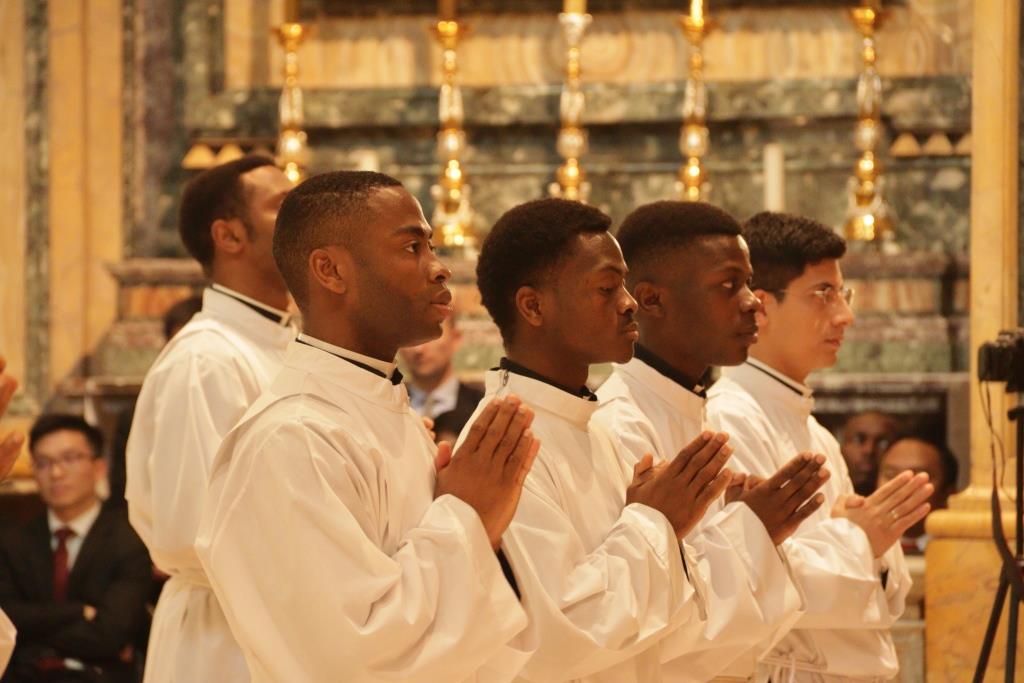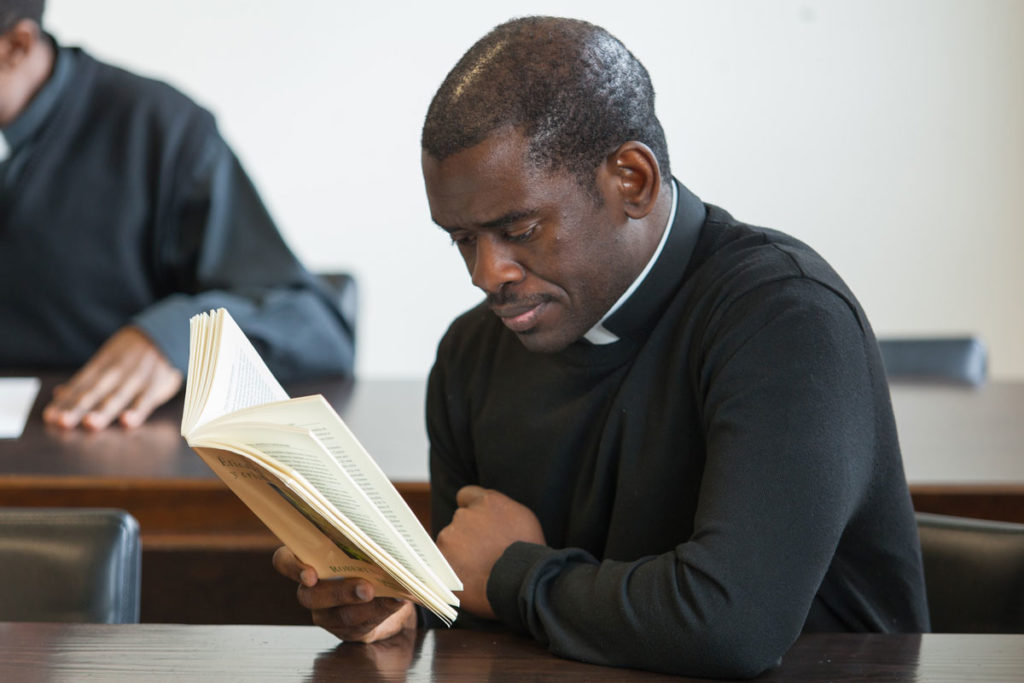
The formation of seminarians is an essential issue! While the universities open their doors, the seminarians also begin a new year of formation, a process that involves not only academic studies, but also a profound integral preparation that forges the future priest.
With the beginning of the new school and university year, students return to the classroom full of expectations and challenges. For seminarians, this moment not only marks the beginning of a new academic year, but also a crucial stage in their preparation to become priests.
The vocation of the priest is a gift and a gratuitous call to serve God and the Church, a life commitment that requires a rigorous and very broad formation. But how is the formation of seminarians and what does a seminarian actually study during his preparation? How are future diocesan priests, and many religious men and women, formed to face the challenges of today's society and to guide the faithful in their spiritual journey?
The formation of seminarians or of a priest has a high cost for the diocese, which makes support for the formation of seminarians a strategic mission in the Church. Thanks to its benefactors, the CARF Foundation makes it possible for many of them to have access to an integral education that not only encompasses theological and philosophical knowledge, but also their human, spiritual and personal development.
Before we go into the specific studies that a seminarian undertakes, it is essential to understand that the priestly vocation is a call that many young people feel in their hearts: it is an invitation to dedicate their lives to the service of God and others, following the example of Jesus Christ.
Saint John Paul II, a fervent defender of priestly vocations, said that the vocation to the priesthood is a special grace that God grants to some, calling them to be his ministers and witnesses in the world. This call is answered with a generous yes, which marks the beginning of a long journey of formation and discernment.

The road to the priesthood begins with philosophical formation, which usually lasts about three years. During this time, seminarians study disciplines that enable them to develop critical thinking and a deep understanding of reality. Some of the subjects addressed include:
St. John Paul II explained that philosophy is one of the keys to understanding the human vocation and the mission of the Church. It is not only an intellectual preparation, but also lays the foundation for a profound reflection on the meaning of life and the vocation to the priesthood.
After completing his philosophical studies, the seminarian enters the stage of theological formation, which generally lasts another two or three years. This is where he deepens his knowledge of the Christian faith and Catholic doctrine. The main areas of study include:
Theology is the heart of priestly formation. It is here that seminarians learn to communicate the faith and respond to the challenges of modernity.

In addition to the academic formation of seminarians, the spiritual life is a fundamental pillar of their preparation. Spiritual formation is aimed at cultivating an intimate relationship with God. To this end, seminarians must delve into a deep life of prayer and communion with God. This emphasis on prayer and spiritual life is what distinguishes the priesthood from other professions.
Human formation helps them to develop their pastoral ministry, which is the practical component that allows seminarians to apply what they have learned in a real context. Throughout their formation, they participate in a multitude of pastoral activities. St. John Paul II expressed this idea by explaining that the priest is a man of charity and his ministry must be marked by compassion and closeness to the sufferings of others.
The formation of seminarians is a strategic and significant investment for the future of the Church. The costs of education, housing, food and materials are high. This is where the CARF Foundationwhich is dedicated to ensuring that no seminarian with a vocation is left without the possibility of formation due to economic reasons.
The complete formation of a seminarian or diocesan priest costs 18,000 euros a year in the University of Navarra and in the Pontifical University of the Holy Cross. This amount includes not only the direct costs of education, but also other associated expenses such as room and board.
The donations to the CARF Foundation not only help cover these costs, but also ensure that seminarians receive the highest quality training (Bologna degrees), so that they can effectively serve the Church and society.
Supporting the formation of seminarians is not only a work of charity, but an investment in the future of the Church. With your donation, you improve the lives of these young men, and their 131 countries, who have decided to respond to God's call.